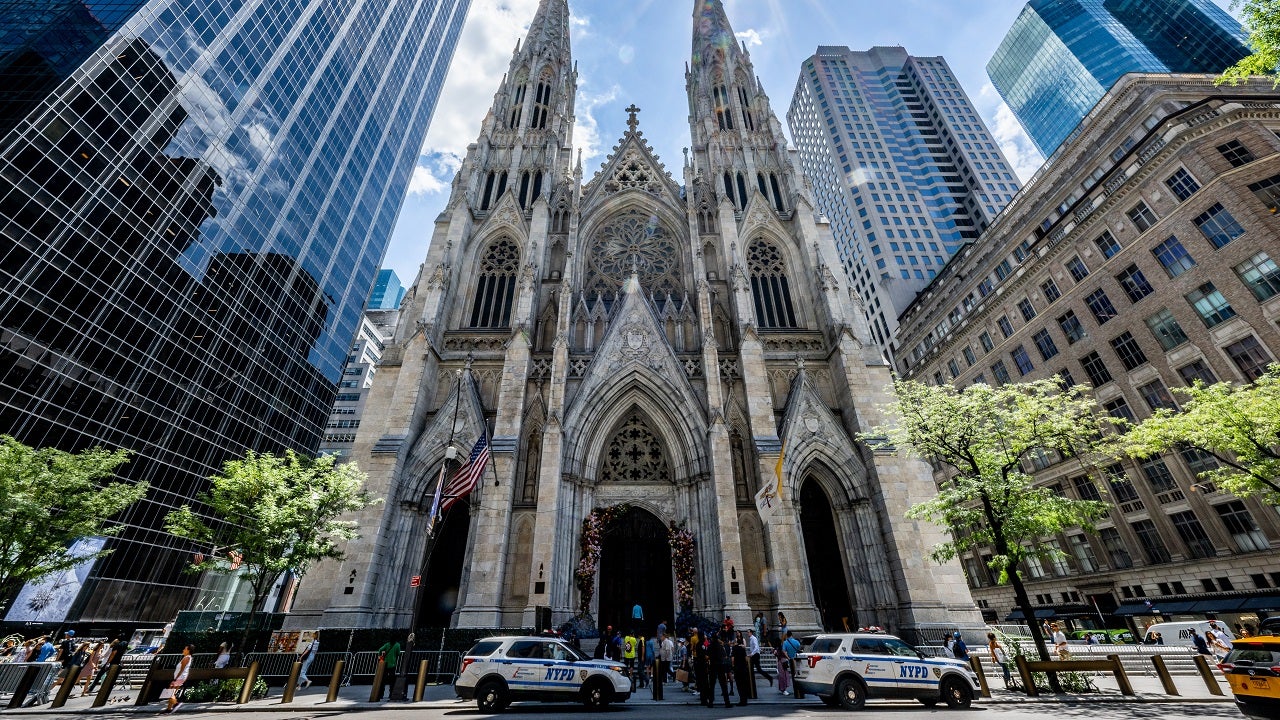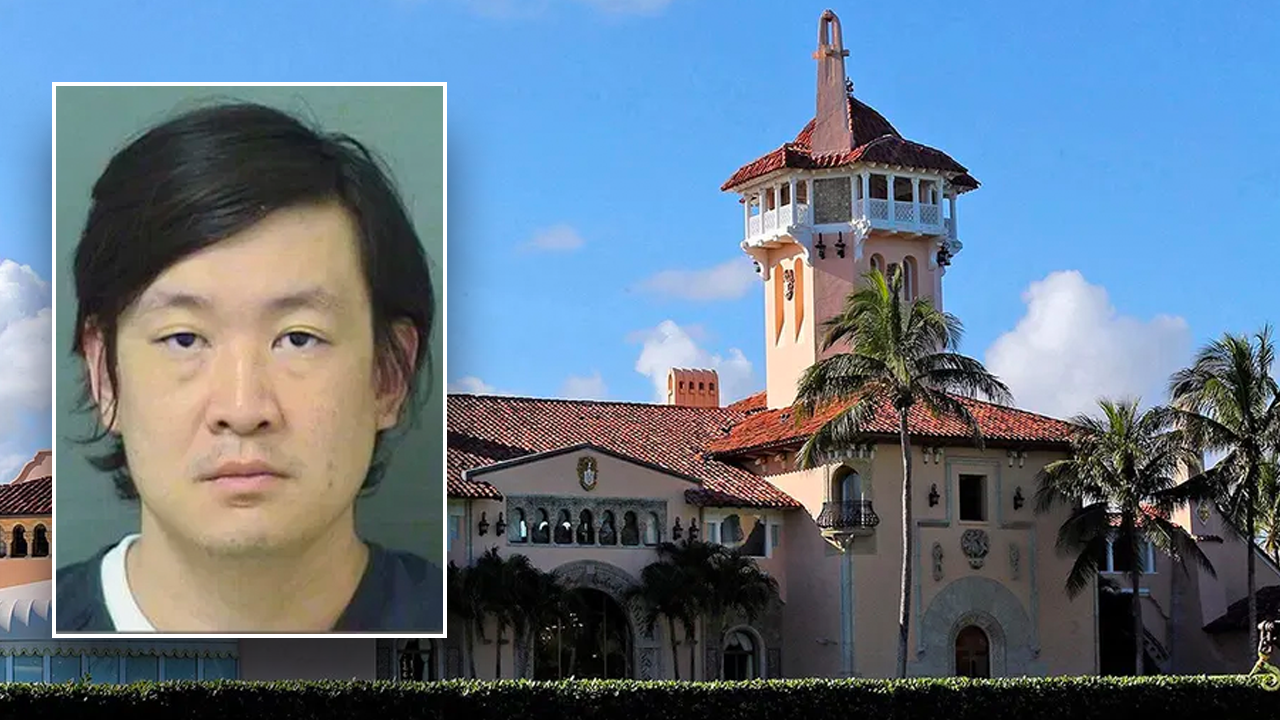Daniel Trujillo and Paul Madrid took over the Eastside Cutters barbershop more than 20 years ago, just a few miles from the casinos of the Las Vegas Strip, where they both once worked.
Their profits bought them spacious ranch homes in subdivisions near their children’s public schools. They tucked away enough money to take their families on the occasional vacation. They survived several boom-and-bust cycles — a defining feature of Nevada’s economy.
The walls of the shop are covered with Mr. Madrid’s paintings of Mexican folk heroes, including Emiliano Zapata and Frida Kahlo, a display of an abiding ethnic pride.
A painting on the shop’s window advertises another important aspect of their lives. Across the swirl of a barber pole, in ornate cursive, it reads: “The Working Class.”
“That’s who we are, man, and we never forget it,” Mr. Trujillo, 51, said. “We want to work. We want money. We want freedom. That’s it.”
“Nobody here ever got a great inheritance,” Mr. Madrid, 54, added.
That identity, a badge of honor for Mr. Madrid and Mr. Trujillo, is a source of intense interest for two other men: Donald J. Trump and Joseph R. Biden Jr. Democrats’ support among Latino men, particularly those without a college degree, has eroded in the last several years, as Mr. Trump’s G.O.P. has tried to rebrand itself the party of the working class. President Biden’s re-election could hinge on his campaign’s ability to reverse this trend in several battleground states, including Nevada.
Mr. Madrid and Mr. Trujillo are a study in President Biden’s challenge. Although the two share much of the same background — both grew up in Las Vegas, learned a trade, briefly belonged to a union and make a stable living — they are now split over who should be president.
Mr. Madrid has remained a loyal Democrat who stands by Mr. Biden, despite misgivings. Mr. Trujillo is an ardent supporter of Mr. Trump, whom he sees as giving voice to people like him.
It’s a rift that is often messy and emotional when it cuts through families or social media feeds. But for these two men, friends who spend their days bantering in an aging Las Vegas strip mall, conversations about the divide are more revealing than wrenching.
There is much they agree about: Both have a hard time seeing how government improves their lives. Both worry about whether their children will be able to attain the same kind of economic success they have. Both lament that no president has managed to fix a deeply flawed immigration system.
Still, they part on basic principles: Mr. Madrid is convinced that politicians can, and should, do good. Mr. Trujillo believes the government should stay out of his way — or maybe even be busted apart.
Nothing has done more to sharpen that split than nearly a decade of politics shaped by Mr. Trump. Politics has become part of the daily chatter in their barbershop, with more and more clients praising the former president, and venting deep frustration with both major parties. Yet the two friends’ disagreements rarely spill out in orderly dogmatic debates, but rather in the provocative ribbing and friendly antagonism of men who focus more on their similarities than their differences.
Drawn to the ‘Jerry Springer drama’
Mr. Madrid and Mr. Trujillo grew up in parallel: the children of rural New Mexicans who moved to Las Vegas during the boom of the late 1960s and early 1970s. They spoke Spanish with their grandparents, played football and rode around in lowriders.
After graduating from high school, Mr. Madrid joined the U.S. Army and was stationed in Alaska during the Gulf War. His friends’ struggles with PTSD made him grateful that he never saw combat. Mr. Trujillo briefly worked as a busboy and in casinos on the Strip. When he tired of the cigarette smoke, he apprenticed with his brother, a barber.
For years, Mr. Madrid was the one far more interested in politics; he considered voting a civic obligation. Mr. Trujillo mostly tuned it all out, except when the news became entertaining fodder for holding court at the shop. (He remembers President Bill Clinton’s impeachment fondly.)
“Politics talks to me. I don’t talk to it,” he said.
He remembers voting for Barack Obama once — maybe in 2012, or maybe in the hype of 2008? Either way, it was Mr. Madrid who sold him on the idea that supporting the first Black president was important, exciting and a chance to be part of a change.
A few years later, when Mr. Trump arrived on the scene, politics found Mr. Trujillo once more. Mr. Trump’s burn-the-house-down ethos matched Mr. Trujillo’s nagging sense that the country needed to be shaken up. His news conferences made him laugh. Like many other Trump voters, Mr. Trujillo started paying closer attention and voting.
“Trump brought Jerry Springer drama to all of us,” he said.
Mr. Trujillo was not turned off by Mr. Trump’s crass rhetoric. He reveled in it. He still views Mr. Trump’s caught-on-tape comment about grabbing women by the genitals as a sort of call to “grab America” in the same place. “I don’t mean disrespect,” he said. “It’s him saying: ‘Stop being a sissy.’”
Mr. Madrid smiles and rolls his eyes at the bluster. He rarely argues with Mr. Trujillo or his customers. He finds quiet ways to make his point. Soon after Mr. Biden won in 2020, Mr. Madrid hung a large American flag at the back of the shop, his attempt to show that patriotism did not belong only to one party.
Mr. Madrid regards Mr. Trump as a master manipulator who has taken advantage of Christians, like him, the working class and anyone who believes the U.S. political system needs fixing. He does not always keep his complaints to himself. A few years ago, at his weekly Bible study meeting, he worried over how Mr. Trump’s attacks on immigrants were hurting his community, and a friend implored him to stop talking about politics.
His own optimism waxes and wanes, but he does not share the dim view of government that Mr. Trujillo and many of their customers do. Still, he wishes there were a leader younger than Mr. Biden poised to take over, and he cringes every time the president missteps.
Even small gaffes can take on a life of their own at the shop, where many clients join Mr. Trujillo in mocking the president.
“I’m a compassionate man,” Mr. Trujillo said. “I’d hate to see my grandfather up there like that, like all tired. I’d say, ‘Come and sit down, abuelito, you know, chill a little. You’ve done enough.’ But he’s up there, and he wants to keep going.”
As much as he might wish otherwise, Mr. Madrid has accepted that Mr. Biden will be his party’s nominee. He is already looking ahead at the next generation of Democrats.
“I try to just hang on,” he said, “and hope someone better comes along fast.”
What’s going to affect me?
Ever since the shop reopened after having closed during the coronavirus pandemic in 2020, the mood among the largely Latino clientele has been bleak.
Men vent their grievances and ask each other: When will they get ahead? These men — and they are all men (Mr. Trujillo politely declines any women who wander in looking for a trim) — describe a vague but persistent sense that they are missing out on advantages others have been handed.
“There’s a lot of people out there looking for help from someone else, getting things handed to them,” Mr. Trujillo said. “I want my taxes to be fair. I want my gas prices low. I want my interest rates low. If you could give me those three things as an American, that’s fine, you’re doing your job.”
For Mr. Trujillo, Mr. Trump’s image as a successful businessman is as untarnished as the former president’s name shimmering in gold on his Las Vegas resort. For months, he fumed as prices for groceries and gas rose, dismissing any analysts talking about the strength of the economy.
But both he and Mr. Madrid are more hopeful than they were two years, or even six months, ago. Some days they see the world as on the precipice of chaos. Other days they are more focused on the relative security of their lives: Mr. Madrid has traveled to Qatar and New York City with his family in the last couple of years. Both of Mr. Trujillo’s children recently purchased their first home. The shop is doing brisk business; customers pack the chairs at every hour of the day several days a week.
These days, Mr. Trujillo relishes railing against what he calls “a very woke world” that has forced him to watch his words. He does not believe that Mr. Trump’s verbal attacks on Mexicans have hurt him, personally. “People are just looking to get offended,” he said.
A few chairs away, Mr. Madrid offered his simple approach.
“You know what I care about: What’s going to affect me, personally?” he said one recent morning. “What’s going to affect my barbershop? What’s going to affect my house outside of that?”
Immigrants from Mexico, El Salvador, Honduras and Colombia make up a large part of the shop’s clientele. And for all they disagree about, Mr. Trujillo and Mr. Madrid agree on this: Both parties have taken advantage of undocumented immigrants who have worked and paid taxes for years.
Mr. Madrid winces when he talks about the Democratic Party’s record on immigration. He would never describe himself as an activist, but he knocked on doors for the Obama campaign, the first and only time he has done so. And he later handed out water bottles during immigration protests. He sees the failure to overhaul the immigration system — while still deporting millions of people — as a stain on President Obama’s legacy.
He has been equally disappointed that Biden has not fixed the system either.
“People will say, ‘Well, he didn’t have enough time or it wasn’t a priority,’” Mr. Madrid said, referring to both Democratic presidents. “When something is not a priority, you’ve never going to make time for it.”
Mr. Trujillo regards Mr. Madrid with a kind of brotherly respect, even turning to him for occasional political guidance. “He always is going to know more than I do,” Mr. Trujillo said, earnestly.
Mr. Madrid still struggles to understand exactly how and why Mr. Trujillo and others have turned to Mr. Trump. Perhaps it is a kind of rebellion, he muses. But he is more flummoxed than worried. He believes that he is part of a silent and solid majority.
As he sees it, Mr. Trujillo and his political allies are like “big, loud football players, looking for attention.”
“They’re the Billy Badasses,” he said. “But that doesn’t mean they’re going to win.”






